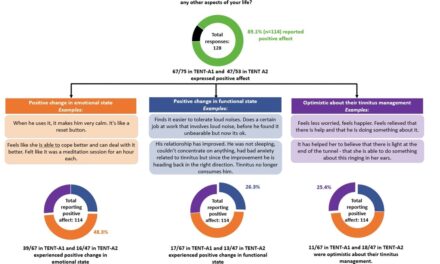Experts have published a list of the 10 most urgent priorities for researching hearing loss, which affects more than 10 million people in the United Kingdom.
According to researchers from the National Institute for Health Research (NIHR), Nottingham Hearing Biomedical Research Unit, hearing loss is one of the group’s six health priority areas, but significantly less money is spent on hearing research – just £47 per one lost year of healthy life compared to other priority conditions such as vision loss (£99) and diabetes (£399). The NIHR is funded by the Department of Health to improve the health of the nation through research.
The list, which was published in the November 28, 2015 edition of The Lancet, names the top 10 research priorities for tackling mild to moderate hearing loss, and aims to refocus future studies on areas that could potentially have the greatest impact in furthering understanding of the condition and developing new treatments.
Top 10 Research Priorities for Mild-to-Moderate Hearing Loss in Adults
- What adverse effects are associated with not treating mild-to-moderate hearing loss in adults?
- Does the early fitting of hearing aids result in increased patient benefit or improved cost-effectiveness of the service, or both?
- Does the early fitting of hearing aids slow the rate of cognitive decline?
- What are the reasons for low hearing aid uptake, use, and adherence?
- Can new technologies replace hearing aids?
- Can stem-cell therapy offer a cure for mild-to-moderate hearing loss in adults?
- Does the early identification, diagnosis, and treatment of mild-to-moderate hearing loss prevent further deterioration of hearing?
- Could new developments to digital hearing aids offer improved speech perception in noisy environments?
- How realistic are hearing tests for assessing the everyday hearing abilities of adults with mild-to-moderate hearing loss?
- Could the use of real-world sounds to help program hearing aids in clinic (rather than tones or beeps) improve effectiveness of hearing aids?
“Hearing loss can have a profound impact on people’s ability to maintain relationships, lead a normal life, and go to work,” said lead author Helen Henshaw, PhD, University of Nottingham, NIHR, Nottingham Hearing Biomedical Research Unit. “With such a huge proportion of the population affected by this condition, it is vital that hearing research funding is prioritized.”
Currently, evidence which underpins clinical practice is typically provided by researchers in universities that are far-removed from frontline clinical services. Also, this evidence generally does not take into account the views and experiences of key stakeholders. The list of top 10 hearing loss priorities were identified by a partnership coordinated by the NIHR Nottingham Hearing Biomedical Research Unit and guided by the James Lind Alliance, which brings together patients, caregivers, and clinicians to identify the unanswered questions about the effects of treatments that they agree are the most important.
To compile the list, the James Lind Alliance Priority Setting Partnership team canvassed the views of more than 460 people with either direct or indirect experience of mild to moderate hearing loss, on what they believed were the most significant treatment uncertainties before asking them to rank the importance of more than 80 research questions connected to these areas on a scale of importance. The top 30 ranked questions were further considered in a final prioritization workshop, which then narrowed these down to the final top 10 priorities based on consensus from a group of patients, family, friends, and clinicians.
The top 10 list will be uploaded to the UK Database of Uncertainties About the Effects of Treatments, and will be made available to the public and the research community, as well as to research funders. A full copy of the paper can be viewed on The Lancet website.
Source: The University of Nottingham






